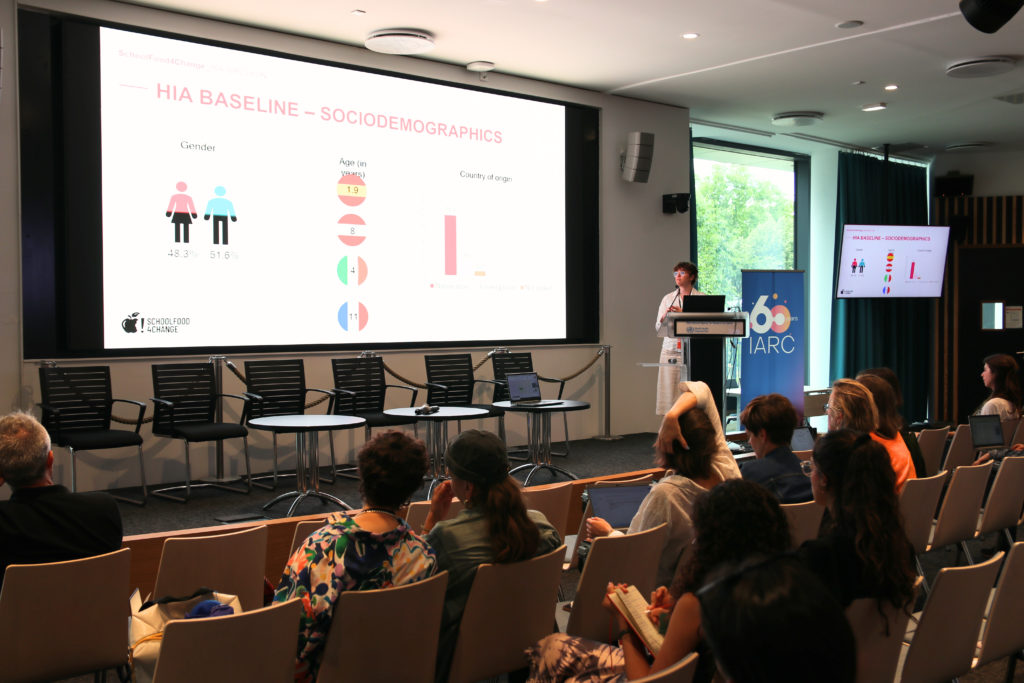School meal programs are one of the most effective strategies to tackle childhood malnutrition, including rising concerns like childhood obesity and overweight in children. Well-designed school feeding initiatives can significantly improve children’s nutrition, support healthy eating habits, and help level the playing field for students from all socioeconomic backgrounds.
Across Europe, recent data reveals that overweight rates range from 9% to 42% of the population, while childhood obesity affects between 3% and 20%. These health challenges are even more prevalent among children from low-income and disadvantaged families, making them not only public health issues but urgent societal challenges.
In many low-income households, children cannot always count on receiving enough nutritious, safe, and balanced meals each day. For these children, school meals serve as a critical source of daily nutrition and stability, promoting healthy growth and better learning outcomes. They also play a key role in reducing childhood food insecurity and breaking cycles of poverty and poor health.
Countries such as Finland and Sweden have set a strong example by providing free, universal school meals for decades. Building on this approach, the European Child Guarantee, adopted in 2021, aims to ensure that all children and adolescents across Europe have access to at least one healthy, safe, and sufficient school meal every day.
SchoolFood4Change: Measuring the Link Between Meals and Child Wellbeing
Within the SchoolFood4Change project, the Health Impact Assessment — developed by the University of Alcalá and BC3 (Basque Centre for Climate Change) — plays a central role in understanding how transforming school food systems can affect children’s health.
The assessment explores the effects of various changes, such as updating food procurement to include organic produce, reformulating school meals for better nutritional balance, and embedding healthy eating into the school’s ethos. It focuses on children aged 1 to 12 in different European contexts and tracks shifts in eating behaviours, nutritional outcomes, and diet-related health indicators.
Importantly, the study also examines how these changes may influence health inequalities across age, gender, migrant background, and socioeconomic status. The findings aim to support evidence-based policy and practice, helping schools, municipalities, and governments make informed decisions for healthier and more equitable food environments.

Who is behind the assessment?
The Health Impact Assessment is being carried out by researchers from the University of Alcalá and BC3, in collaboration with national project coordinators and local and regional authorities. This joint effort has successfully engaged schools and families in four diverse study sites: Milan, Vienna, Madrid, and the French region of Dordogne.
Thanks to this strong collaboration, a total of 90 schools — ranging from kindergartens to secondary schools— participated in the evaluation. These schools are helping to assess how improvements to school food environments can influence children’s eating habits and diet-related health outcomes.
Before implementing any changes, researchers collected baseline data on students’ dietary behaviours and nutritional health. Currently, follow-up data is being gathered to evaluate the impact of improved school meals and food policies.
The findings will offer valuable insights into how healthier, more sustainable school meals can support better health outcomes and help reduce health and social inequalities among children in Europe.
Stay informed — the full results of the Health Impact Assessment will be published in December 2025.
Follow our updates to learn how school meals can build healthier and more equitable societies.
